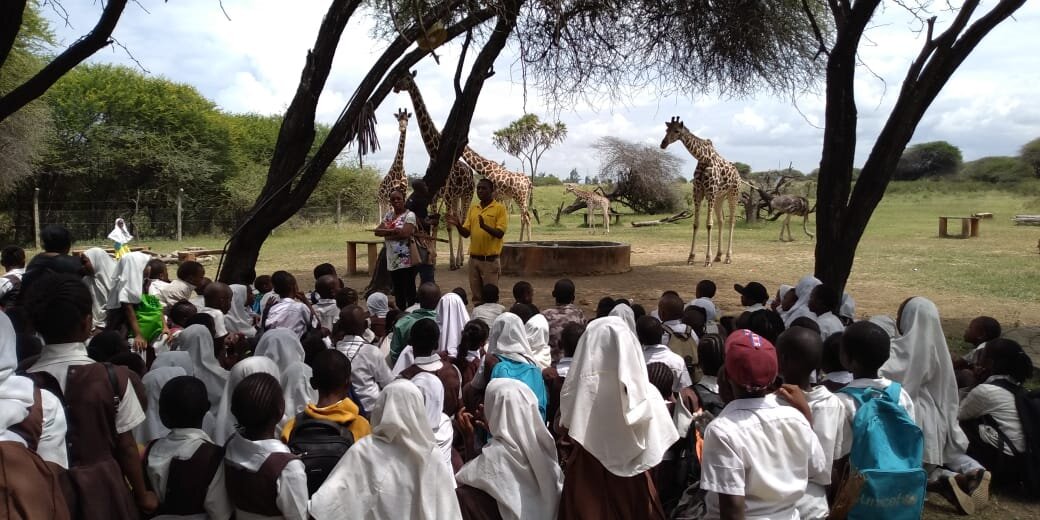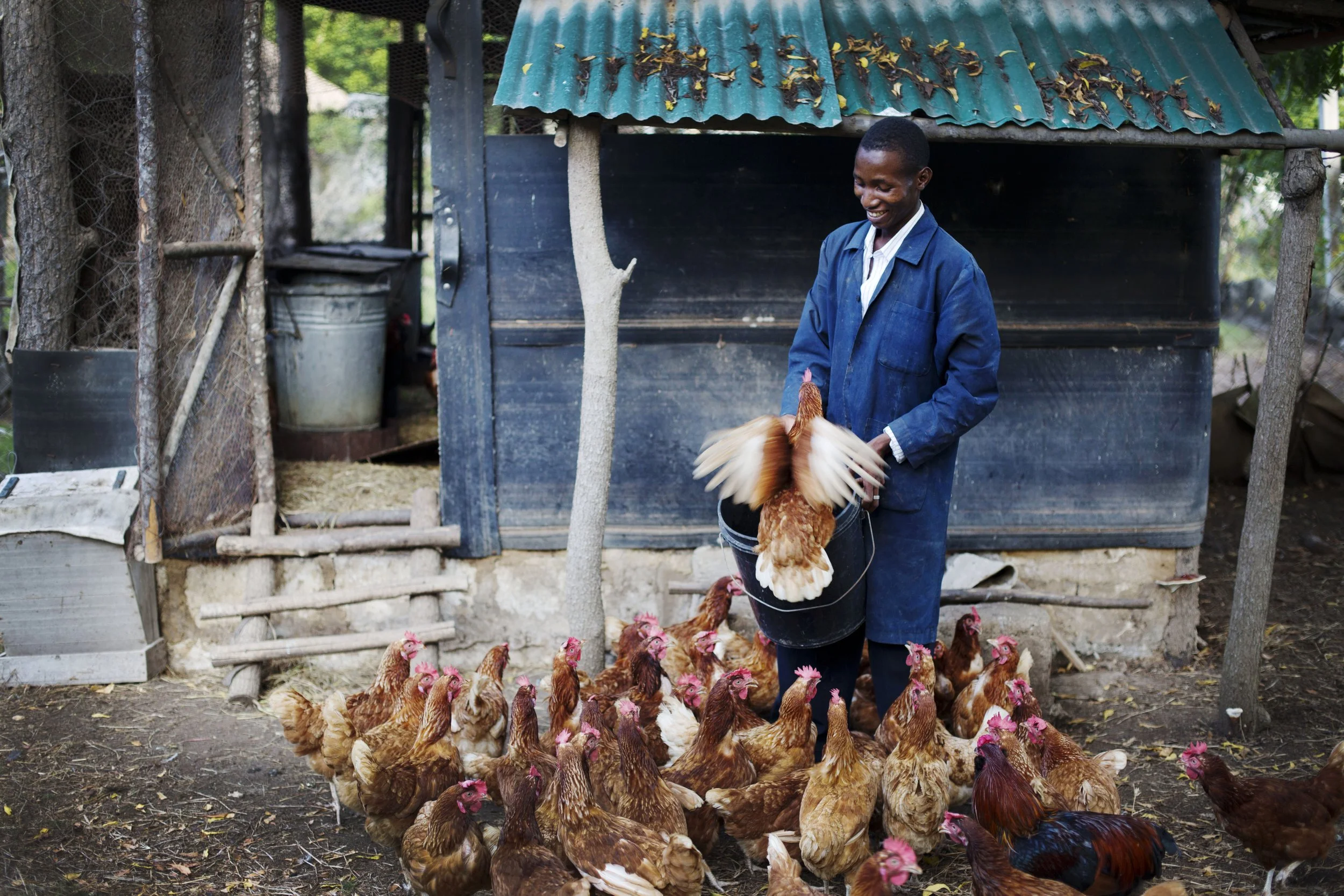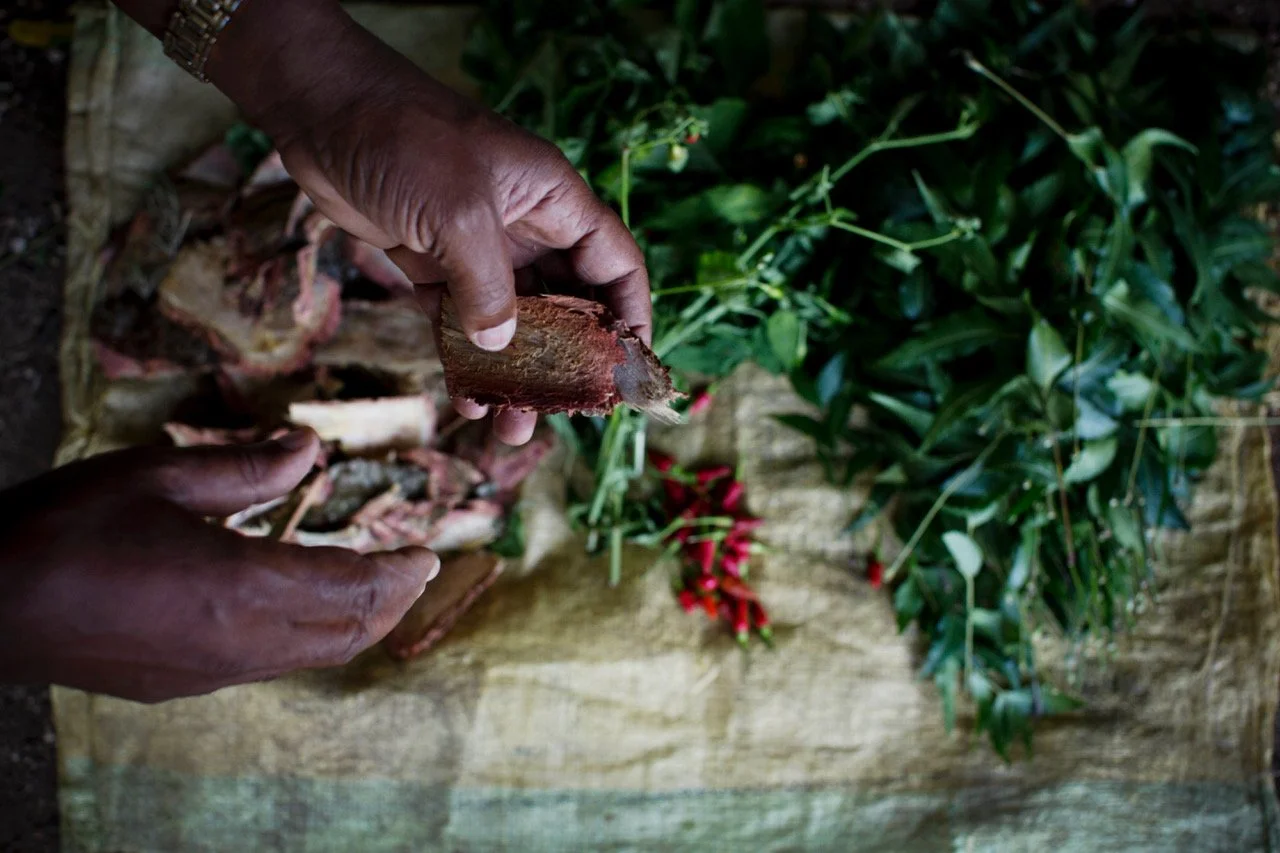
The Baobab Trust
Founded in 1991, The Baobab Trust is a non-profit environmental organisation based in Mombasa, Kenya. The Trust builds on the knowledge and expertise of UNEP Global Laureate Dr. Réne Haller to improve conservation efforts and develop sustainable ecosystems.
We carry out community-based projects, which include sustainable farmer training sessions and health and education awareness. We aim to work and assist the local stakeholder communities in Bamburi and the surrounding area. In all of our programmes, we focus on food security, health, water conservation, agriculture and education.
All this is done through experience and knowledge gained over the years, which we pass on through workshops, training sessions, open days, and educational tours.
The Baobab Trust manages the Nguuni Sanctuary, as well as all our Health Clinic, Education Centre, & Community Outreach.
Environmental Education
-

Nguuni Education Centre
Located within the heart of the sanctuary, our Nguuni Education Centre provides a safe, inspiring space for over 5,000 young people each year to learn, explore, and connect with nature.
Our year-round environmental education programme includes nature film screenings and documentaries, interactive nature walks, and birdwatching activities that highlight both local and rare species.
The Centre is also home to a well-stocked library with over 11,500 books, and an IT Suite designed to support digital literacy and enrich learning experiences for all visitors.
-

School Tours
We welcome local schools and institutions to Nguuni Sanctuary to learn about the vital importance of ecosystem restoration, wildlife conservation, and managing human-wildlife conflict.
Our hands-on activities spark curiosity and deepen understanding — from tree planting to guided exploration of the natural world, students are encouraged to ask questions and connect with the environment around them.
Each year, Nguuni hosts an average of 6,000 students from hundreds of schools, offering memorable and meaningful educational experiences in nature.
-

Marine Conservation
Our Sea Turtle Conservation Programme runs year-round, raising awareness about the importance of protecting turtles and marine ecosystems.
At the Bamburi Hatchery, visitors — especially students — have the unforgettable opportunity to witness and take part in releasing baby turtles into the ocean, marking the start of their life’s journey. In 2024 alone, we safely released over 4,100 hatchlings into the wild.
We also host regular beach clean-up days with children from Mombasa, using these hands-on experiences to educate the next generation about the impact of plastic pollution and the importance of keeping our oceans clean.
Sustainable Agriculture
-

Youth Farming
In partnership with the Ministry of Agriculture and Livestock, and in support of agriculture in the Kenyan curriculum, we host regular Schools Open Days.
These events welcome students, teachers, and community members to our Demonstration Farm, where they can learn first-hand about sustainable, organic, and environmentally friendly farming practices.
In 2025 alone, over 1,300 students have attended our Open Days — a clear sign of the growing interest in engaging young people with regenerative agriculture and climate-smart solutions.
-

Farmer Training
We offer training in organic farming to farmers around sustainable crop production, integrated fish farming, livestock and poultry keeping, bee keeping, composting, tree nurseries, charcoal making and alternative energy (including biogas) throughout the year.
Through our years of expertise in sustainable agriculture, we have developed the Mtopanga Training Farm. Our Demonstration Farm is underpinned by the principles of integrated and organic farming; an integrated ecosystem which is profitable and sustainable. With a number of components on the farm, each structure is interlinked, providing and benefiting from one another. -

Research & Innovation
At Baobab Trust, learning is at the heart of everything we do. Through our ongoing work, we’re constantly exploring new techniques and discovering more effective ways to protect the environment and grow food sustainably — while sharing these insights with the communities around us.
Here are just a few examples of our breakthroughs and outreach initiatives:
We’ve developed a range of alternative farming technologies, including sustainable charcoal production, biogas systems, and solar energy solutions.
Community
-

Nguuni Health Clinic
Within the sanctuary, we’ve established a Health Centre that plays a vital role in supporting the well-being of surrounding rural communities — especially women and children, who make up around 80% of the population we serve.
In collaboration with the Ministry of Agriculture, we provide access to a range of essential healthcare services through the Nguuni Health Clinic. These include an under-5s vaccination programme, antenatal and postnatal care, family planning support, and educational workshops focused on nutrition, hygiene, and disease prevention.
The clinic is staffed by a dedicated team including a clinician, nurse, and diagnostic lab technician. Each year, we conduct around 7,000 patient consultations and deliver over 3,500 vaccinations to children under five — ensuring healthier futures for families in the region.
-

Health Outreach
For those unable to access our health clinic, we run a weekly community outreach programme to bring essential healthcare directly to remote areas.
Each week, our dedicated health team travels to rural communities, delivering medical care and patient treatments close to home. On average, we reach over 1,000 patients each year through this service — ensuring that even the most isolated individuals have access to the healthcare they need and deserve.
This outreach work is a crucial part of our commitment to equitable, inclusive health access for all.
-

Education Outreach
In the rural communities we support, many children are unable to attend school — despite primary education being free in Kenya. Instead, they are often needed at home to collect water, work on farms, or care for younger siblings.
To help break this cycle, Baobab Trust has supported the creation of three community schools, offering children access to the basic education they need to build a brighter future. We also provide adult education opportunities, such as literacy classes for parents, ensuring entire families can benefit from learning.
Our educational outreach programme runs every two weeks, visiting these community schools to deliver reading and learning support, creative activities, and porridge meals — helping over 650 children stay nourished, engaged, and ready to learn.